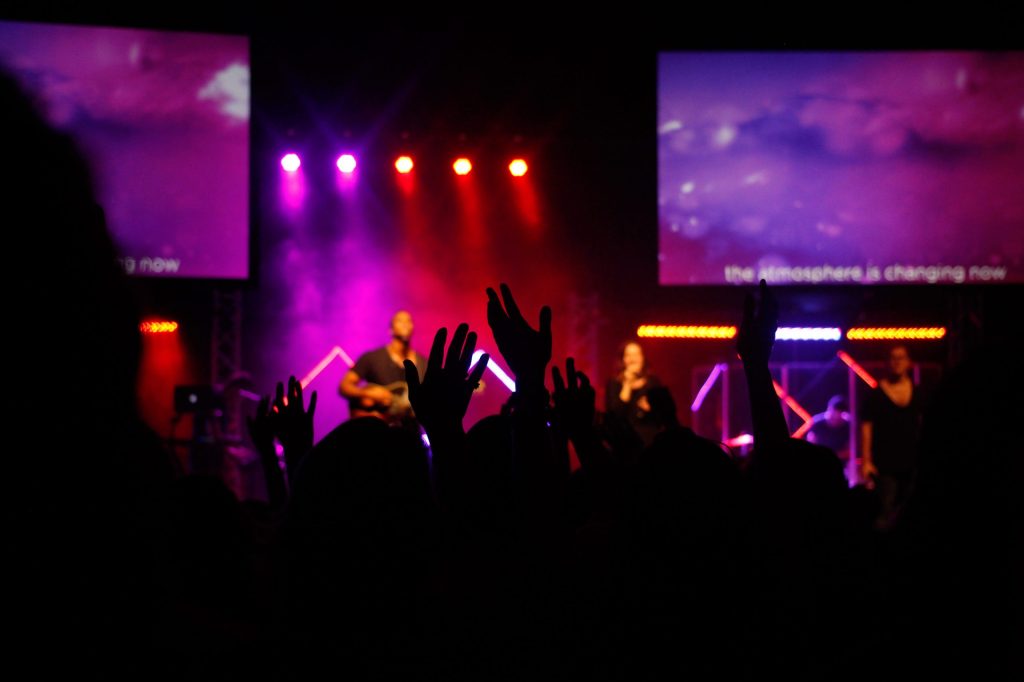This unedited blog article by Craig Greenfield appeared on craiggreenfield.com on 27 February 2021 and was promoted by The Gospel Coalition.
In early 2021, if you’re a church pastor, or even just a disappointed worship leader, there’s a good chance you’re waiting for things to “get back to normal” – for church as we know it to resume. Pews, tiny communion wafers, and velvet offering bags – we miss you a surprising amount!
But I want to suggest, that getting “back to normal” would be a big mistake. In fact, getting back to normal might just be the WORST thing the church could do once this pandemic subsides.
I’ve had the dubious privilege of preaching in churches all over the world, via Zoom, during the past few months. (It’s definitely NOT my favourite way to communicate, so don’t hit me up). But here’s what I’m encouraging church folks in Westernized, “developed” countries to do:
Give up on normal.
Give it up. It wasn’t working anyway. And the pandemic has just amplified the brokenness of how we do church – as well as forcefully ushered in a new era. The invitation that is now in front of us, is the invitation to move from Stage to Table. Here’s what I mean…
By “Stage”, I’m referring to the Sunday morning gathering event, the Sunday morning service, the spectacle, the spotlight, the pedestal (that we offer certain leaders), and everything else that goes with organizing ourselves around a weekly performance.
By “Table”, I’m referring to gathering as a community of equals, often with food, maybe drinks, in our own homes – and in particular, organizing ourselves around the Biblical practice of radical hospitality.
Here are three reasons why I think we urgently need to move from Stage to Table…
- The Stage tempts us to put leaders on pedestals
The Stage puts certain people in the spotlight. It’s unavoidable. It’s the system we’ve embraced. Most of us are familiar with the cases of Ravi Zacharias, or Carl Lentz from Hillsong, or Bill Hybels, or whoever the next one to fall will be. And we know there will be more. When we put people on a pedestal it is inevitable that they are going to let us down sooner or later. (And I include myself in that. I may not be an abuser, but I am definitely a broken human being who sins.) Ultimately, none of us were made for the pedestal. We were made for the confessional. But the Stage pushes leaders into the spotlight in an unhelpful way.
- The Stage robs us of real connection
Coronavirus has robbed many of us of real connection beyond our bubbles. I was separated from my own wife and family for EIGHT RIDICULOUSLY LONG months. Your case might not be so extreme, but most of us have spent these past months longing for deeper, more significant relationships. We are desperate for meaningful connection.
But let’s face it, Sunday morning services, never really provided that. Polite chit chat in the church foyer is dead. Good. Let it die. And if that’s all the connection churches are offering when services resume, it’s simply not going to cut it. We’re longing for authentic community, not specialty coffees.
- The Stage distracts us from the things that are truly important
For many church staff and volunteers, the vast majority of their time and resources are focussed on the Sunday morning production. The bigger the church, the more true this becomes, as the services become ever more elaborate and professional – planned down to the minute.
But what if our efforts went towards gatherings that reflected more of Jesus? Less performance, more participation. Less celebrity, more diversity. Less formal, more messing around. What if we put our energy into gatherings that could actually transform the world?
So, what’s keeping us from the Table?
In this new era, we need many more small communities of Christians who will welcome lost and lonely people, offering them a place of belonging and a new form of family. We need to move from Stage to Table.
So, what’s stopping us from moving? Why aren’t we already there? Why didn’t we pivot straight to Table as soon as the Stage was removed from us by pandemic restrictions? I’d like to suggest that there are 4 main obstacles stopping us from embracing the radical hospitality Jesus taught and lived out. And very conveniently, they spell the word LOST.
Cos, we’ve LOST our way as a church.
Our practice of radical hospitality has been….
…Limited
Over time, as we became more affluent and independent, we needed our neighbors less and less. And in our independence we began to limit our practice of hospitality to friends and family. Frankly, Martha Stewart became our guide, instead of Jesus. Now, during the pandemic, those limitations have often been imposed from outside, and for good reasons.
But this is our window of opportunity – a jolt, a time of reflection that might possibly wake us up. So let’s consider what Jesus had to say about limiting hospitality to friends and family…
“When you give a special lunch or dinner, do not invite your friends, your brothers or sisters, your relatives, or your rich neighbors; if you do, they may invite you back and so you will be repaid. But when you give a banquet, invite the poor, the crippled, the lame, the blind, and you will be blessed.” (Luke 14:12‐14)
…Outsourced
In the past, as Christians led the way in welcoming the sick, the lonely, and the hungry, we began to set up institutions to provide this care on a larger scale. This was right and good. But then we began to outsource everything. Travellers from out of town were pointed to the nearest motel, instead of being offered our spare room. Personal evangelism morphed into inviting friends to highly-produced Christian events. Hospitality was outsourced to the ushers at the Sunday morning service. We lost our personal commitment to practicing the ways of Jesus, even as we built amazing institutions to perform these functions on our behalf.
Consider how the religious elite responded when Jesus pushed back on this tendency:
The Pharisees and the teachers of the law muttered, “This man welcomes sinners and eats with them.” (Luke 15:2)
…Structured
Even if we wanted to change, it would be nearly impossible. Because as we’ve become busier and more individualistic, we’ve structured our lives in ways that make it almost impossible to welcome others. Many of us have gotten used to commuting long hours, arriving home exhausted, and then attending church services across town on Sundays (because they have the best stage performance)…. There is simply no more room in our lives for the ways of Jesus.
But once again, the pandemic offers us a window of opportunity to change! New ways of working and living have suddenly become more possible. We’re re-examining everything. From church, to work, to where we live, and even how we do relationships. This is our moment for change. Consider the lifestyle of this overly comfortable man, highlighted by Jesus:
There was a rich man who was dressed in purple and fine linen and lived in luxury every day. At his gate was laid a beggar named Lazarus, covered with sores and longing to eat what fell from the rich man’s table. (Luke 16:19‐21)
…Traded
There is one more obstacle that is standing in our way. And unlike the first three, this one has deepened its roots during the pandemic. The problem is, we’ve traded radical hospitality for entertainment and distraction. We’ve traded wine and bread, and laughing and loving around the Table, for Netflix and Amazon Prime. To be fair, we’ve always done this – traded the “best” for the “good”. An entertaining preacher on a stage will attract crowds, when what we really need is a hug and a listening ear, or a good cup of coffee with a faithful friend. Jesus was all about having fun, partying and eating with others – especially the marginalized. And it was shocking to the religious folks around him.
When this pandemic is over, are we going to go back to normal? Consider the words of Jesus, as he surveyed a generation that had LOST their way:
“How can I account for the people of this generation? They’re like spoiled children complaining to their parents, ‘We wanted to skip rope and you were always too tired; we wanted to talk but you were always too busy.’ John the Baptizer came fasting and you called him crazy. The Son of Man came feasting and you called him a boozer.” (Luke 7:34 The Message)
For these reasons and more, we’ve LOST our vision for radical hospitality. We’ve left the Table and instead, embraced the Stage. But once in a lifetime we get a chance to reset. God gives us grace. An earthquake disrupts our distracted rituals. This pandemic is such an event.
Everything within us screams for normality. To return to our soothing addictions. But this is our chance for change.
I was fortunate to learn these things through my own life-changing event – moving into a Cambodian slum 20 years ago. Over many years living on the margins, we saw our neighbors, who were surviving on less than a dollar a day, share their meager food with widows and orphans in the community. We saw them welcome strangers to join them for a meal – though they barely had enough for themselves.
We saw radical hospitality. We saw real community. The kind of communities of faith that people long for. And in these, the poorest of the poor, we saw glimpses of Jesus.
The non-Western churches of Asia and Africa and Latin America are leading the way. They know and live the Table in their everyday lives to a much greater extent than we do in the West. That’s why they are thriving and we are dying.
So join me in praying that in 2021, the Western church will not be able to “get back to normal”.
Honestly, this is our last chance.

